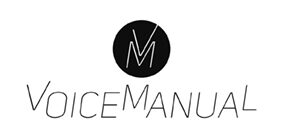One cannot learn to sing even with the world’s greatest singing teacher if one does not try out, practice and sing. Well how can one practice singing if it’s not clear how and what to practice? In this article we have listed tips for smart practicing to develop the singing voice.
1. Learn To Monitor Yourself
The essential part when developing the singing voice is monitoring and observing yourself. This is also a skill in which one can develop. So learn to be very observing with how singing feels. Pay attention to the following especially:
- Breathing
- Stomach
- Larynx
- Pharynx
- Mouth
- Middle Body
- Jaw
- Soft Palate
- Tongue
If you are feeling any of the following, you’re on the right track:
- Feels comfortable and pleasant
- Feels easy
- Feels active
- Feels free
- Feels stable
If you are feeling any of the following, it is probably a good idea to change the strategy and possibly ask a singing teacher for help:
- Feels tense or constricting
- Feels unpleasant
- Hurts
- Feels unstable
- Feels forced
2. Know What You Are Doing
It’s a lot easier to practice when you know what and why you are practicing. The understanding of how the voice works combined with your own experience of how it feels in your instrument is a super efficient combination in practicing.
Information about singing can be found through reading or taking part in different courses and/or group training. It may not be the most effective strategy to use most of the private lesson with a voice teacher to get information from them; one who wants to practice singing with efficiency is active in finding knowledge themselves. Still, it is advisable to ask for advice from a teacher or someone else who knows about it.
Also, remember to ask questions! There isn’t one unambiguous answer to everything, so don’t be shocked to realize that you may be given many different answers. It is also good to remember one’s responsibility with filtering information received; does the one answering your questions have a lot of experience, or how were they trained? Are you receiving many different answers, or does a certain question tend to divide opinions?
3. Crystalize Your Goals
Doing vocal exercises just because “that’s what people do” does not promote your learning process. Instead, if you know what the vocal exercise is aiming for and what its goal is, practicing makes a whole lot more sense and brings wanted results faster.
So, ask your teacher what is the goal of this exercise and concentrate on that. Often the same exercise can develop many different aspects of singing, depending on how it is performed. In order to train your voice to be pliable and agile, it is good to give the instrument different stimulus from time to time.
4. Practice Regularly
Developing requires regular practicing. A smart voice student practices often with quality. Depending on the exercise and the function being learned, sometimes even a shorter daily practice period is enough to remind the body of the wanted way of using the instrument. Daily vocal practice brings out good results when a good plan of what and how to practice is made.
Your singing teacher can also be your coach. Most teachers advice to practice certain things and some give also instructions on how to do it. If you are uncertain of how you should practice, make sure to ask for more precise instructions. Your voice teacher wants you to make progress as much as you do, no doubt.
Remember to observe (or to say it in a more fancy way, reflect) yourself while practicing. How did singing feel? Should something be done in another way? Were you able to carry out with the instructions?
5. Schedule, Plan and Make Notes
It is a good idea to mark the practice period for singing in your calendar. That way you can be sure that you have reserved a spot in which to concentrate on singing. If your time is limited, it may be a good idea to plan beforehand what things to concentrate on during each practice period.
Having a training journal is not just for athletes. Writing down the exercices done and how they felt help to find a nice rhythm for practicing. It is also easier to be on track of how you are making progress. You can also have an audio version of your training journal which allows you to hear the progress made through recorded audio files.
6. Have Mercy On Yourself
None of us is a machine, therefore it is more than likely that practicing doesn’t always go as planned. Please don’t beat yourself up for it! Concentrate on what you were able to achieve, even if it were little. Practicing singing isn’t about instant wins, but rather it’s a life-long marathon.
